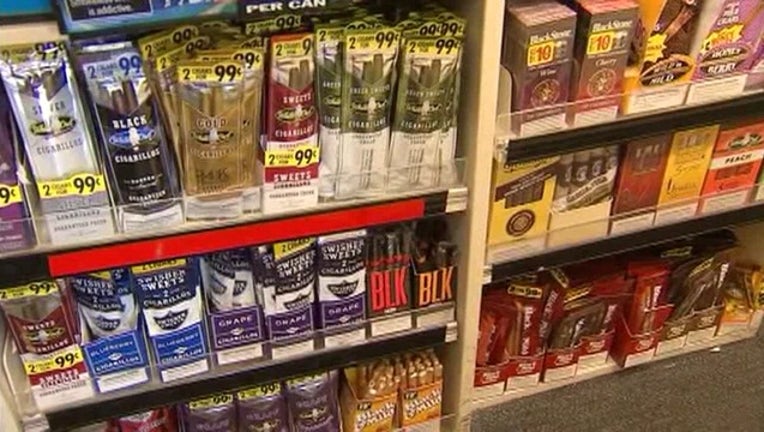Resounding win for flavored tobacco ban in San Francisco

FILE ART - Flavored tobacco
SAN FRANCISCO (KTVU/AP) - San Francisco voters gave tobacco companies a resounding message on Tuesday: Retailers are forbidden to sell flavored tobacco products in the city.
Measure E passed with 68 percent of the vote. Politico called this law the "toughest in the nation."
That's despite efforts R.J. Reynolds Tobacco Co., which pumped at least $12 million into a campaign to persuade San Francisco voters to reject the tobacco ban on selling flavored tobacco products, including menthol cigarettes, certain chewing tobaccos and vaping liquids with flavors like cotton candy, mango and cool cucumber. Small-business owners also had opposed the ban, which they say will hurt business because people can still buy flavored "e-liquid" and tobacco products in neighboring cities or online. Businesses that violate the law could have their tobacco sales permits suspended. These critics pointed out that California already raised the smoking age to 21 and say a ban would only drive sales underground.
By comparison, ban supporters have raised $2.8 million, including more than $2 million from billionaire former New York City Mayor Michael Bloomberg. These Yes on Measure E supporters had successfully argued a ban would help stop another generation from getting hooked on nicotine.
San Francisco supervisors last year unanimously approved a ban on sales of flavored tobacco, saying the nicotine masked in flavors like mango, caramel and mint serve as starter products enticing kids to become smokers. Under the ordinance, smoke juices that taste like tobacco would still be allowed.
The ordinance was set to take effect in April but was put on hold after R.J. Reynolds collected enough signatures to put it on the ballot.
Other cities such as Oakland, New York and Chicago have passed similar but less-restrictive laws reducing access to flavored tobacco and flavored vaping liquids. But San Francisco was the first in the United States to approve an outright sales ban. It also was one of the first to ban indoor smoking in workplaces, bars and restaurants.
Dr. Pamela Ling, a professor of medicine at the University of California, San Francisco who studies how tobacco is marketed to young people, said that while smoking has decreased among teenagers, e-cigarette use is increasing, in part because of flavored nicotine products and novel vaping devices, including one made by San Francisco-based JUUL that looks like a thumb drive.
"A lot of kids wouldn't necessarily smoke a cigarette, but if you hand them a little JUUL or a vape and you tell them it tastes like cookies-and-cream or creme brulee, they will try it out of curiosity," Ling said.

